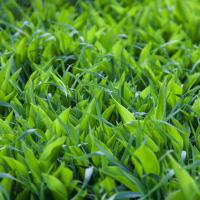Are Tomato Plant Leaves Toxic to Cats?
As a cat owner, it's important to know the plants that could be toxic to your feline friend. One common plant found in most gardens is a tomato plant. While tomatoes are safe for cats to eat in small quantities, the leaves of the plant can be poisonous to them. This article will explore the dangers of tomato plant leaves for cats and what to do if your cat accidentally ingests them.
Why Are Tomato Plant Leaves Toxic to Cats?
The leaves of tomato plants contain solanine, a toxin that is harmful to cats. Solanine is a glycoalkaloid that is also found in other plants such as potatoes and eggplant. This compound acts as a natural pesticide, protecting the plant from insects and animals that may want to consume it. However, when ingested by cats, it can cause various health problems, ranging from mild to severe.
What Are the Symptoms of Tomato Plant Leaf Poisoning in Cats?
The symptoms of tomato plant leaf poisoning in cats depend on the amount ingested and the cat's size and overall health. Some signs to watch out for include:
Vomiting and diarrhea
Difficulty breathing
Loss of appetite
Lethargy
Abnormal heart rate
Tremors and seizures
Death (in severe cases)
If you notice any of these symptoms in your cat after ingesting tomato plant leaves, seek immediate veterinary attention.
How to Prevent Tomato Plant Leaf Poisoning in Cats
The best way to prevent tomato plant leaf poisoning in cats is to keep them away from these plants. If you have tomato plants in your garden, make sure your cat doesn't have access to them. You can also talk to your veterinarian about safe and effective cat repellents that can be sprayed on plants to discourage your cat from getting near them.
If you have indoor tomato plants, make sure they are kept out of reach of your cat. Place them in a room that your cat doesn't have access to, or use a barrier to prevent the cat from getting to the plants.
What to Do if Your Cat Ingests Tomato Plant Leaves
If your cat ingests tomato plant leaves, contact your veterinarian immediately. The sooner your cat receives treatment, the better chances they have of recovering. Depending on the severity of the symptoms, your veterinarian may recommend inducing vomiting, administering activated charcoal, or hospitalizing your cat for observation and treatment.
In conclusion, tomato plant leaves can be toxic to cats due to the presence of solanine. While tomatoes themselves are safe for cats to eat, it's important to keep your feline friend away from the leaves of the plant. If your cat accidentally ingests them, seek veterinary attention immediately. With proper care and attention, you can keep your cat safe from the dangers of tomato plant leaf poisoning.

 how many times do yo...
how many times do yo... how many planted tre...
how many planted tre... how many pine trees ...
how many pine trees ... how many pecan trees...
how many pecan trees... how many plants comp...
how many plants comp... how many plants can ...
how many plants can ... how many plants and ...
how many plants and ... how many pepper plan...
how many pepper plan...































